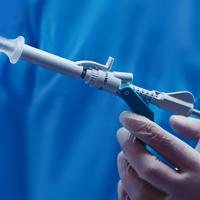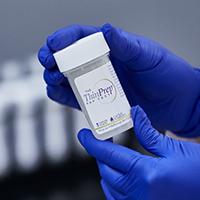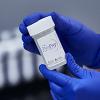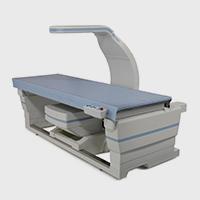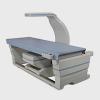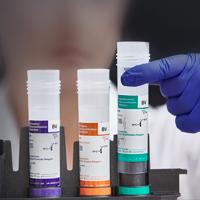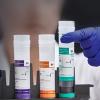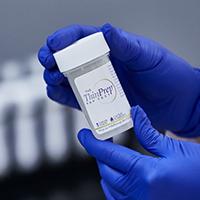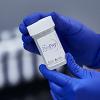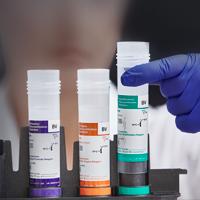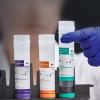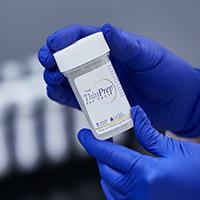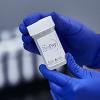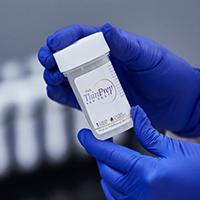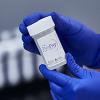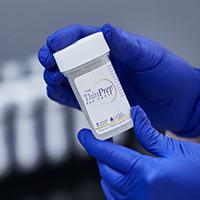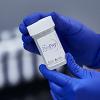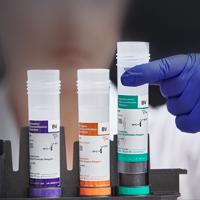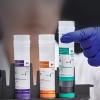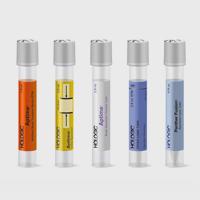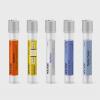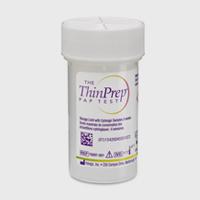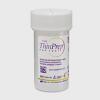Reimagining Diagnostics for Acute Gastroenteritis: The Role of Molecular Testing in Modern Healthcare

Acute gastroenteritis is a significant public health concern worldwide. It typically presents with a sudden onset and short duration. Patients generally exhibit self-limiting symptoms like diarrhoea (sometimes bloody), vomiting, nausea and abdominal discomfort or cramps. The impact of acute gastroenteritis may also extend beyond mild symptoms.1
In 2021, it was estimated that there were more than a million lives lost attributed to diarrhoea among all ages globally, representing the leading cause of death in children aged under 5 years.2 In Europe alone, nearly 800,000 cases are reported annually.3 In 2023, campylobacteriosis and salmonellosis were the most and second most frequently reported diseases, respectively, both showing an increase in the total number of cases compared to 2022. Shiga toxin-producing Escherichia coli (STEC) ranked third among reported human infections, followed by Yersinia enterocolitica.,4 whilst the most common causes of traveller's diarrhoea are Escherichia coli enterotoxigenic, enteroaggregative, and Shigella, although there are significant variations according to the geographic area visited.5
A New Era in GI Diagnostics
To minimise the impact of infection, accurate and rapid diagnosis is critical to guide patient management and treatment decisions. Culture-based and other traditional diagnostic methods have limitations. They may result in inappropriate therapy and delay targeted therapy due to the time (in some cases days) required to identify the causative pathogen.6
Molecular assays offer significant improvements in turnaround time and sensitivity, revolutionising GI pathogen detection.7 They are increasingly replacing traditional tests, as they deliver results in a few hours,6,7 allowing clinicians to initiate appropriate treatment more quickly. This has the potential to reduce complications and improve patient outcomes, as well as allowing rapid isolation and additional patient management as needed.7
Multiplex molecular diagnostic panels, advanced laboratory tests that use molecular biology techniques to detect and identify multiple pathogens in a single test from a single patient sample, have significantly improved the detection of gastrointestinal pathogens. Whilst data regarding their effect on clinical outcomes and patient centred measures is currently limited, the available evidence is promising: A clinical study in 2024 was able to demonstrate that routine use of multiplex molecular diagnostic panels, for all children presenting to the emergency department with acute gastroenteritis, identified more clinically-relevant pathogens and resulted in over a 20% reduction in return visits.8
Another pre- and post-implementation study at a tertiary care academic medical centre compared traditional diagnostic methods with molecular multiplex testing. It found that the introduction of molecular multiplex testing reduced the average number of additional tests per patient. The number of downstream medical investigations such as abdominal and/or pelvic imaging studies per patient also decreased. Furthermore, there was a reduction of inappropriate antibiotic use.
Taking these factors and the cost of testing into account, the authors estimated a per-patient saving of nearly $300 with the use of molecular multiplex testing.6 In addition to speed, molecular diagnostics significantly enhance sensitivity. For pathogens such as Salmonella spp., Shigella spp, Vibrio spp, and Campylobacter spp., molecular assays demonstrated up to 50% improvement in sensitivity compared to traditional methods.6
The Future of Molecular Diagnostics in Acute Gastroenteritis
The decision of which testing methods to use need to weigh a number of factors. As discussed above, traditional culture-based methods are slow, labour-intensive, and often have poorer sensitivity compared to culture, resulting in lower detection rates and significant demands on laboratory resources. In contrast, molecular PCR panels provide rapid, broad, and highly sensitive detection, significantly enhancing patient care by enabling faster and more targeted clinical management.
The costs associated with testing need to be assessed within the wider context. Although molecular tests carry higher direct costs, they ultimately reduce overall healthcare expenses by streamlining diagnosis and minimising unnecessary treatments and ancillary testing.6
The adoption of molecular panels represents a pivotal shift toward efficient and precision diagnostics in the management of acute gastroenteritis. However, conventional culture methods remain an essential component in diagnosis, particularly for antimicrobial susceptibility testing and epidemiological surveillance in public health.6
Conclusion
Acute gastroenteritis is a significant cause of morbidity and mortality worldwide caused by different pathogens with overlapping symptoms, making accurate diagnosis challenging based solely on aetiology. A precise diagnosis is critical for patient care and public health, to prevent transmission and guide appropriate treatment.9
Molecular testing methods are not expected to replace traditional culture entirely, they will enhance diagnostics by providing tools for rapid results to guide initial patient management. Culture-based techniques will continue to play a vital role in providing antibiotic sensitivity, typing of pathogens as well as isolating the strains that can be archived for outbreak investigations by public health authorities.10
As the global community focuses on pandemic preparedness, diagnostic platforms must offer both breadth and adaptability. Molecular systems, especially those with open-access architecture, are best positioned to keep pace with this expanding landscape.
Overall, the integration of molecular diagnostics into routine care for acute gastroenteritis marks a significant advance in both individual patient management and public health, ultimately leading to better outcomes and more efficient use of healthcare resources.
To learn more, visit the Gastrointestinal Solution page.
For more insight articles, visit the Hologic Innovation Exchange.
2797
Hologic BV, DA Vincilaan 5, 1930 Zaventem, Belgium
Adedire O, Love NK, Hughes HE, Buchan I, Vivancos R, Elliot AJ. Early Detection and Monitoring of Gastrointestinal Infections Using Syndromic Surveillance: A Systematic Review. Int J Environ Res Public Health. 2024;21(4). doi:10.3390/IJERPH21040489
Kyu HH, Vongpradith A, Dominguez RMV, et al. Global, regional, and national age-sex-specific burden of diarrhoeal diseases, their risk factors, and aetiologies, 1990–2021, for 204 countries and territories: a systematic analysis for the Global Burden of Disease Study 2021. Lancet Infect Dis. 2025;25(5):519-536. doi:10.1016/S1473-3099(24)00691-1
Calduch EN, Cattaert T, Verstraeten T. Model estimates of hospitalization discharge rates for norovirus gastroenteritis in Europe, 2004–2015. BMC Infect Dis. 2021;21(1). doi:10.1186/S12879-021-06421-Z
The European Union One Health 2023 Zoonoses report. EFSA Journal. 2024;22(12). doi:10.2903/J.EFSA.2024.9106
Vila J. New molecular diagnostic tools in traveller’s diarrhea. J Travel Med. 2017;24(suppl_1):S23-S28. doi:10.1093/JTM/TAW071
Beal SG, Tremblay EE, Toffel S, Velez L, Rand KH. A gastrointestinal PCR panel improves clinical management and lowers health care costs. J Clin Microbiol. 2018;56(1). doi:10.1128/JCM.01457-17
Zhang H, Morrison S, Tang YW. Multiplex Polymerase Chain Reaction Tests for Detection of Pathogens Associated with Gastroenteritis. Clin Lab Med. 2015;35(2):461-486. doi:10.1016/j.cll.2015.02.006
Pavia AT, Cohen DM, Leber AL, et al. Clinical Impact of Multiplex Molecular Diagnostic Testing in Children With Acute Gastroenteritis Presenting to an Emergency Department: A Multicenter Prospective Study. Clinical Infectious Diseases. 2024;78(3):573-581. doi:10.1093/CID/CIAD710,
Kramme S, Dähne T, Fomenko A, Panning M. Acute Viral Gastrointestinal (GI) Infections in the Tropics—A Role for Cartridge-Based Multiplex PCR Panels? Trop Med Infect Dis. 2022;7(5). doi:10.3390/TROPICALMED7050080
Fleckenstein JM, Matthew Kuhlmann F, Sheikh A. Acute Bacterial Gastroenteritis. Gastroenterol Clin North Am. 2021;50(2):283-304. doi:10.1016/j.gtc.2021.02.002



